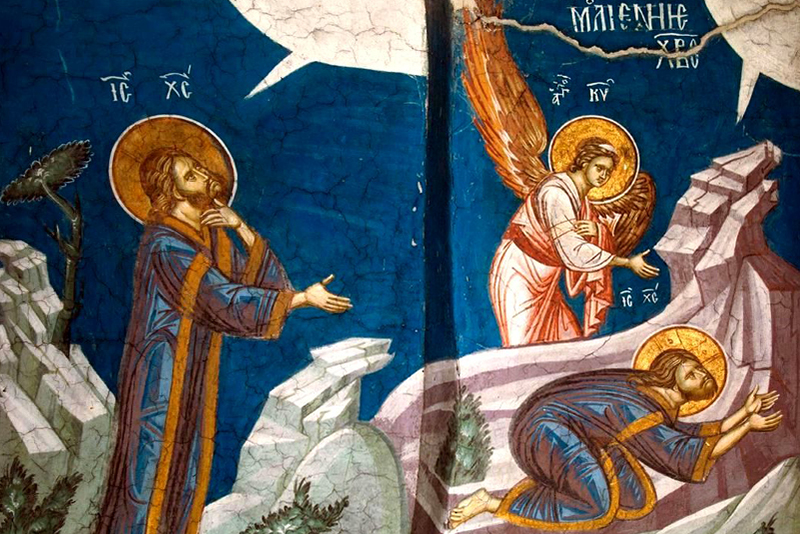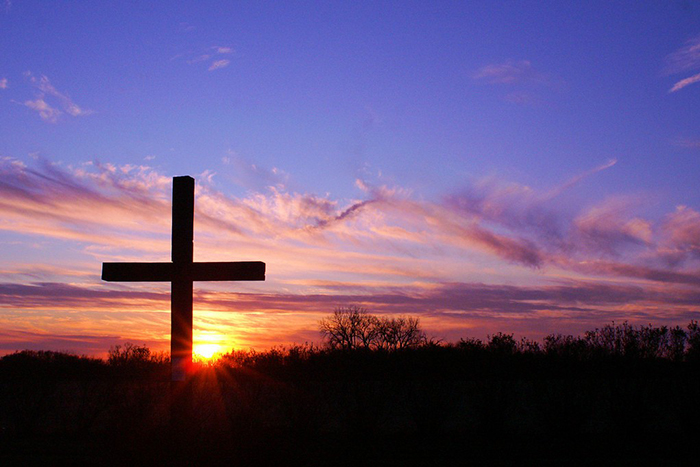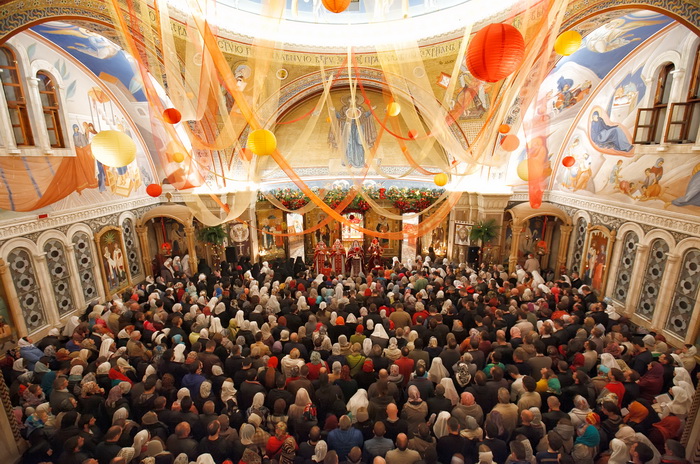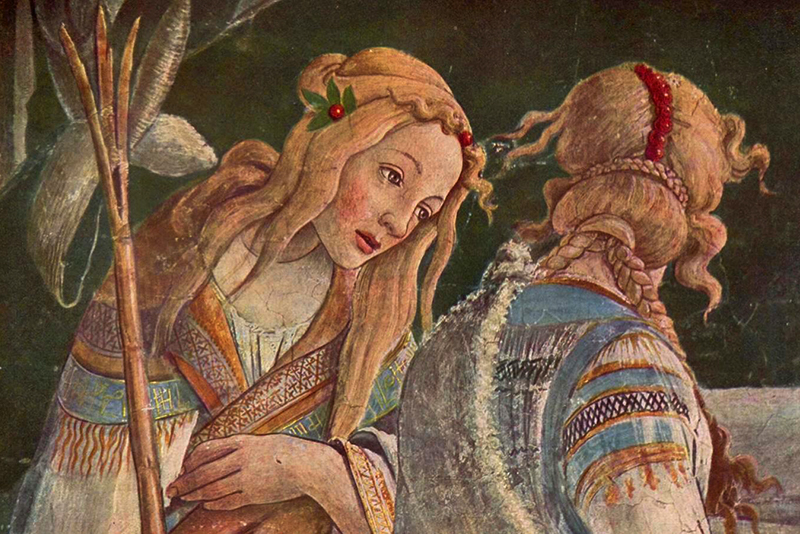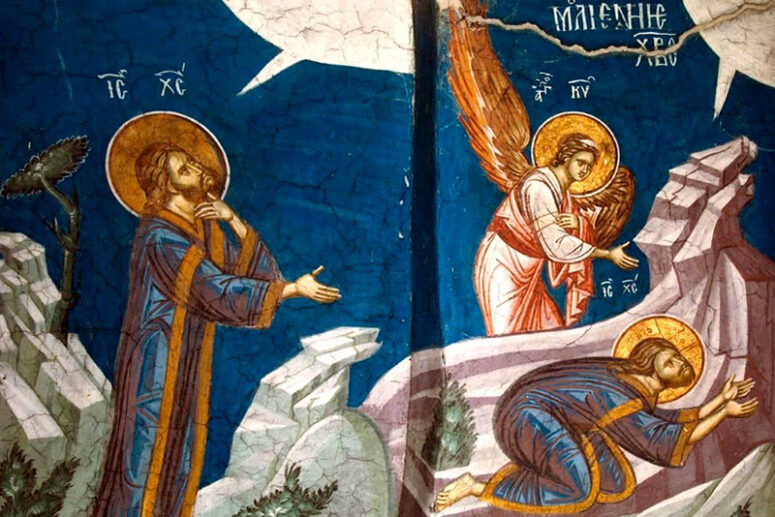
Should be believe the narratives of the Gospels even when there is no historical evidence to confirm them?
The Apostles were asleep while Jesus was praying in the Garden of Gethsemane, “My Father, if it is possible, may this cup be taken from me.” (Matthew 26:39). How do we know what He was saying?
Jesus’ agony on the garden is one of many events of biblical history which, at first glance, should never have appeared in the Gospel. The events described therein appeared to unfold without the presence of the apostles or at least in the absence of any witnesses who could have related them to the evangelists.
For example, how could the Apostles Matthew and Luke know what went on between Christ and the devil tempting Him in the desert? How could Apostle John have known the details of Our Lord’s conversations with Nicodemus (John 3:1 – 21) or the Samaritan woman when none of His disciples was anywhere near when they happened? How did the evangelists know about the questioning of the Saviour before the high priests, Pontius Pilate, and Herod? None of the apostles was present at the science, and it is unlikely that they would have interviewed Pilate or Caiaphas after the fact. Finally, where would they have found out about Judah’s first visit to the high priest, or about what he did when the Lord was sent to His execution?
Let us say this upfront: only our Lord the Saviour and the writers of the Gospels know the full answers. But we may still add to them any number of even more challenging questions. For example, how did the writer of the Book of Genesis know how God had created the world and man (Genesis 1:1 – 31, 2:8)? No man would have been present at any of these events, for sure. When Cain was killing Abel (Genesis 4:3 – 15), was anyone watching? There were no other people on earth except them and their parents Adam and Eve (who would have intervened if they had been present at the murder). Or how did the writer of the Book of Job hear the conversation between God and Satan who offered him to test if the Righteous Job feared God for nothing (Job 1:9)?
In general, we all have a choice to make. We may approach the biblical texts only as a historical source, and concern ourselves entirely with who could be the witness of this or that event and how reliable their evidence might be. Alternatively, we may treat the texts as a revelation from God by accepting that the writers of the Bible’s books will have known at least some of the facts not from personal observation or conversations with others, but as a revelation from God.
For example, the Apostles would have learned about the temptations of Christ in the desert from Christ himself, suggests Bruce Metzger, a US biblical scholar. According to Metzger, there is no reason to question the historical accuracy of this event. “No-one in the early church would have lied about these facts about the Messiah, as the temptation of the devil in those times was not a messianic inspiration of the time. Apostle John the Theologian may have been a witness to the questioning of Jesus in the homes of the high priests Annas and Caiaphas; he mentions that he was known to the high priest, and spoke to the servant girl on duty who let him stay in the courtyard (John 18:15, 16). It is equally likely that the disciples knew the details after His resurrection; for as the Scripture tells us, the resurrected Lord appeared to them for forty days and spoke about the kingdom of God (Acts 1 – 3), and opened their minds so they could understand the Scriptures, notably, the prophecies about the Messiah. He told them, “This is what is written: The Messiah will suffer and rise from the dead on the third day (Luke 24:45 – 46).
First, let us recall what exactly is said in the Gospel about the Saviour’s prayer in the Garden of Gethsemane before his capture.
They went to a place called Gethsemane, and Jesus said to his disciples, “Sit here while I pray.” He took Peter, James and John along with him, and he began to be deeply distressed and troubled. “My soul is overwhelmed with sorrow to the point of death,” he said to them. “Stay here and keep watch.” Going a little farther, he fell to the ground and prayed that if possible the hour might pass from him. Abba, Father,” he said, “everything is possible for you. Take this cup from me. Yet not what I will, but what you will.” Then he returned to his disciples and found them sleeping. “Simon,” he said to Peter, “are you asleep? Couldn’t you keep watch for one hour? Watch and pray so that you will not fall into temptation. The spirit is willing, but the flesh is weak.” Once more he went away and prayed the same thing. When he came back, he again found them sleeping, because their eyes were heavy. They did not know what to say to him. Returning the third time, he said to them, “Are you still sleeping and resting? Enough! The hour has come. Look, the Son of Man is delivered into the hands of sinners. Rise! Let us go! Here comes my betrayer!” (Mark 14:32 – 42).
Apostle Matthew repeats this narrative of Apostle Mark almost verbatim (Matthew 26:36 – 46), while the evangelist Luke adds, “An angel from heaven appeared to him and strengthened him. He prayed more earnestly, and his sweat was like drops of blood falling to the ground.” (Luke 22: 43, 44).
One might think that one would have needed to watch carefully to note these small details. However, as all the three narratives suggest, the disciples were asleep. As the Byzantine commentator of the Bible Euthymius Zigabenus (died after 1118) suggested, the disciples learned about the prayer at Gethsemane from Jesus after His resurrection over the forty days that he appeared to them.
However, most scholars still believe that narrative of the event comes from the Apostles who remained a short distance away from the praying Lord. In the words of the Evangelist Luke, He withdrew about a stone’s throw beyond them (Luke 22:41), or about 7 – 10 metres. The Lord had meant them to bear witness to His prayer to His Father; He wanted to bring to them His most important message – even as he was distressed and unwilling to accept His death, he nevertheless surrendered His human will to the will of God by agreeing to drink His cup if that was the will of His Father: ” “My Father, if it is not possible for this cup to be taken away unless I drink it, may your will be done.” (Matthew 26:42).
One would not expect that the Lord, Who wanted his agony shortly before His death to be known to all Christians and Who had brought to Gethsemane His three most loyal disciples, would have allowed them to sleep through the whole prayer.
“As Jesus was praying, the disciples must have been watching vigilantly, at least in the beginning,” writes Alexander Lopukhin (1852 – 1904), professor of the Spiritual Academy of Saint Petersburg and a known commentator of the Bible, “However, the stressful and sleepless night exacerbated their tension and fatigue. The eyes of Christ’s disciples were exhausted from sorrow (Luke 22:45), while His enemies were awake.”
Metropolitan Ilarion (Alfeev) of Volokolamsk contends with Lopukhin. In his book “Jesus Christ: life and teachings”, he writes, “One might wonder how the evangelists might have known all about it if they admitted that they were asleep? However, it was still possible that some of them were still awake at least during a part of Jesus’ prayer. Furthermore, his prayer must have taken some time, as suggested by His remark, “Are you still sleeping and resting?” The disciples may have been sleeping in turns. Second, Jesus left and returned thrice, and each time he woke them up. Despite being exhausted from sorrow, and overwhelmed with fatigue, they could still witness His prayer. Thirdly, he was not very far, only a stone’s throw away. They could still see him. Finally, He must have prayed aloud, perhaps with the same strength and fervour that he appealed to His Father on the Cross.
What are the implications?
The apostles may have observed Jesus’s prayer at Gethsemane. Despite falling asleep intermittently, they still realised something very important. The Saviour overcame his natural and understandable fear of the painful death that law ahead of Him.
This event in Christ’s life, then, is well supported by eyewitness accounts, or so it seems…
However, we view the Holy Scripture as Divine Revelation, and with good reason. Not all the events in the Bible must be supported by eyewitness accounts and historical evidence. Even where such evidence might exist (as in the example with the Lord’s prayer at Gethsemane), we still base our trust in it on our faith. Christians do not treat the Gospel as a collection of memoirs or historical accounts but rather as a gift from God. While still among His disciples, the Lord knew of His ascension to the Father, and He took care not to leave us without His word and guidance towards our salvation.
Right before His prayer in the Garden of Gethsemane, the Lord gathered His apostles and promised them that even after He took leave of them, He would not leave them as orphans. The Spirit of Truth would come to guide them. “He will teach you all things and will remind you of everything I have said to you.” (John 14:26). – With these words, he made it clear to his disciples: if there was anything that they had not understood or could not remember, the Holy Spirit would instruct them. The Holy Spirit descended on Christ’s disciples on the Day of the Pentecost and gave them all that they needed to fulfil the commandment of Christ: “Go and make disciples of all nations, baptising them in the name of the Father and of the Son and the Holy Spirit, and teaching them to obey everything I have commanded you.”
The apostles followed Christ’s commandment with courage and dedication. They read from the Scripture and spoke in tongues. Had they known any foreign languages before, as fishermen from Galilee? Certainly not. But they began to speak in other tongues as the Spirit enabled them. The apostles were enlightened by the spirit, and this is the answer to all our doubts about the reality or accuracy of the Gospels’ narratives.
Translated by Catalogue of Good Deeds
Source: https://foma.ru/otkuda-my-znaem-o-chem-molilsja-hristos-v-gefsimanskom-sadu-esli-apostoly-spali.html

